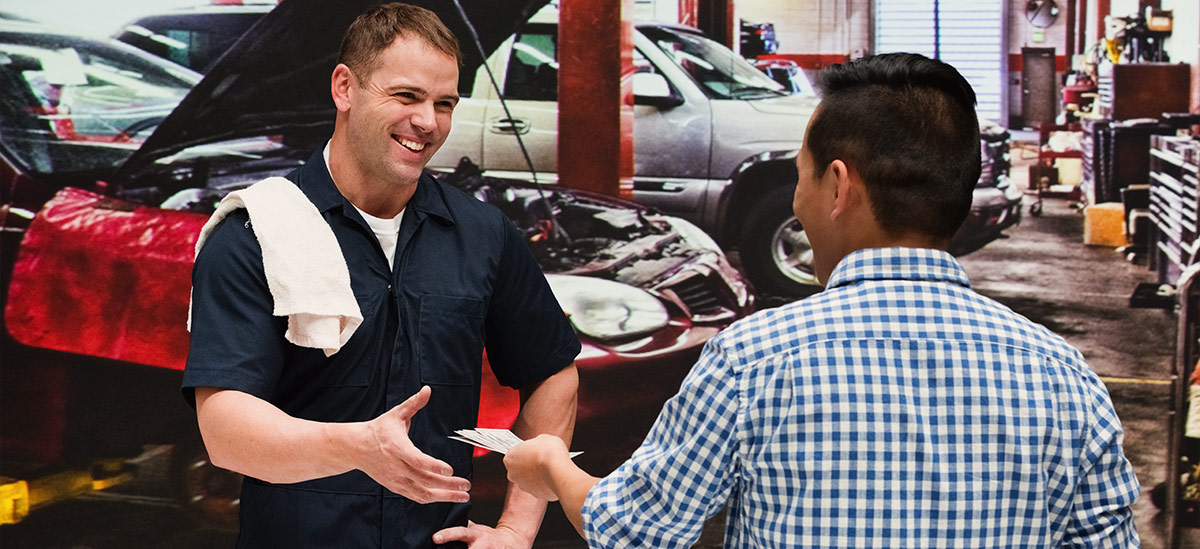
We all know that the cost of a vehicle goes far beyond the sticker price. The actual cost of owning a car can be significant, and it's important to budget appropriately when shopping for your first ride or next one. Knowing exactly what the costs will be can help you pick the best car for your needs and budget and save you headaches down the road.
Common Costs of Car Ownership
So you're ready to buy your first car, or your next one. You've set a price and might even be working with your monthly budget. It's important to factor in all the various operating costs of car ownership, or you might end up with a vehicle you can't actually afford. Here are some of the common costs of owning a car:
Purchase Price
The first and most obvious cost of owning a car is its price. You might be looking at this in terms of a lump sum or sticker price, but if you're financing or leasing the vehicle, you might be considering the monthly payment.
You might have a lump sum to buy a car with, or you might be considering finance or leasing. New cars can cost hundreds in monthly payments on the vehicle itself. This price varies greatly, so start with an idea of your available budget, but then whittle it down to account for other costs.
Fuel
Fuel costs and fuel economy vary widely, so make sure you get a sense of your driving style and how often you will drive before you start to consider what fuel will cost. Understand your annual average mileage needs and start to consider fuel expenses and what vehicles offer economical and efficient fuel options and miles per gallon (MPG).
If you know you drive 300 miles per week, then you can take it from there. Look at the combined fuel economy rating for a rough estimate of average mileage in the vehicles you're shopping for. Then, divide your weekly driving distance by that mile-per-gallon figure.
If you are looking at a vehicle that gets 30 miles per gallon, you need 10 gallons of fuel to drive 300 miles each week. Multiply 10 by the fuel price in your area to determine how much you'll spend on gas.
Electric vehicles (EVs) don't use gas, but they do take electricity to charge. So find out how much electricity in kilowatts it takes you to charge your electric car. Then you can factor in your weekly mileage needs from there to get a sense of the operating costs for an EV. It's worth noting that EV charging stations currently charge between $10 and $30 to use.
Taxes and Fees
Every vehicle driven on public roads must be registered to do so. Most governments charge a registration fee for this. It's often an annual fee of a few hundred dollars. The more significant fee is sales tax or licensing tax. This is usually a lump sum that you pay at the time of the vehicle purchase, and it's usually rolled into your monthly payment.
Insurance
Liability insurance is mandatory for drivers in almost every US state[1]. Liability insurance pays for any damage or medical costs that occur to the other party if you cause an accident. If you finance or lease your vehicle, the lender will require that you protect their collateral (your new car) with comprehensive and collision insurance. This coverage pays for any damage to your own vehicle.
Insurance rates vary depending on the type of car you drive, the area you live in and your own driving record. Get insurance quotes before you narrow down your choice of vehicle and budget in a monthly or annual payment.
Maintenance
Many drivers neglect to account for regular vehicle maintenance when they're choosing a new car. Both new and used cars must undergo regular maintenance to function properly.
A car, truck or SUV with long service intervals may ultimately be less expensive than one with shorter intervals. While you're researching vehicles, look at how often they require oil changes and get quotes from dealerships so you know how much those services will cost.
Oil changes are the most common maintenance item, and you will also have to consider the following wear and tear components including:
- Brake pads
- Tires
- Windshield wipers and fluid
- Transmission fluid
- Coolant
- Power steering fluid
- Belts
- Air filters
- Spark plugs
The older your vehicle is, the more you should put aside for emergency repairs. It's a good idea to set aside a portion of your overall vehicle budget towards a rainy-day fund for when unexpected issues arise.
Other Hidden Costs
Tolls, parking, and roadside assistance premiums are all common costs of driving. You might also need to pay for subscriptions like OnStar and XM Radio after a trial period.
Of course, there's also the hidden cost of a vanity license plate that truly reflects your personality or important personal touches like fuzzy dice or sequined steering wheel covers.
Tips To Reduce The Cost Of Car Ownership
Ways to mitigate or reduce the operating costs of any vehicle exist. For example, did you know that your driving habits could affect your mileage by as much as 25%?[2].
Also, some insurance companies will reduce rates if you let them monitor your driving habits.
Drive To Survive
By looking up the road, predicting traffic, accelerating gently, braking gently and choosing routes that have the least stop-start, you can reduce your monthly fuel costs. You'll also be safer and cause less wear and tear to your vehicle.
Follow Your Maintenance Schedule
Your owner's manual will include a maintenance schedule. If you use this schedule to plan and budget, you'll save money in the long run and won't be caught out by any surprises. Regular maintenance also helps reduce the risk of emergency repairs or breakdowns.
Shop Around For Insurance
If you've been paying the same amount for insurance for several years, it's possible you're paying too much. Insurance companies change their rates every year, so shopping around at renewal time could save you money.
Refinance
Just as insurance rates fluctuate, finance rates do, too. There may be times when you can take advantage of lower interest rates. Refinancing your car may be an option to explore.
Budget Wisely and Buy With Confidence
Buying a new car is an exciting time for anyone. Whether it's your first ever vehicle, your first new vehicle, or even an upgrade you've been looking forward to, buying a new car is immensely satisfying. If you consider the true cost to own a car before you head out to the dealership, you'll be better prepared for the costs ahead and better equipped to find ways to save money.
Learn more about vehicle finance options and calculate your monthly payments here.







